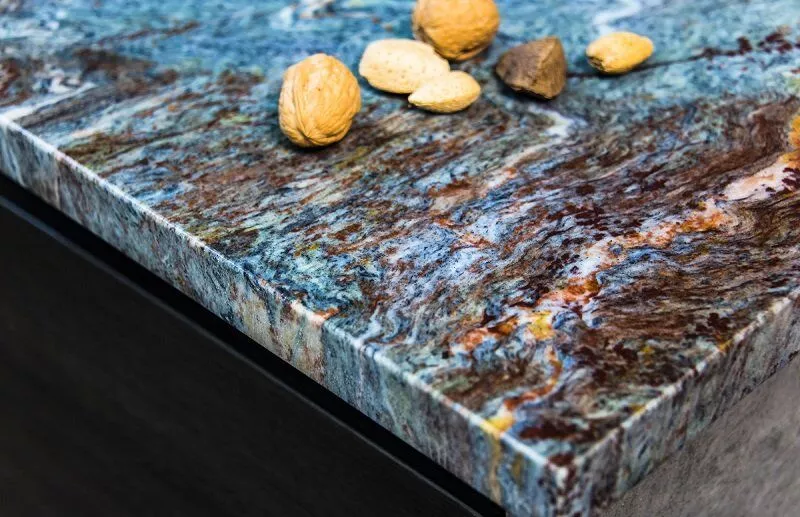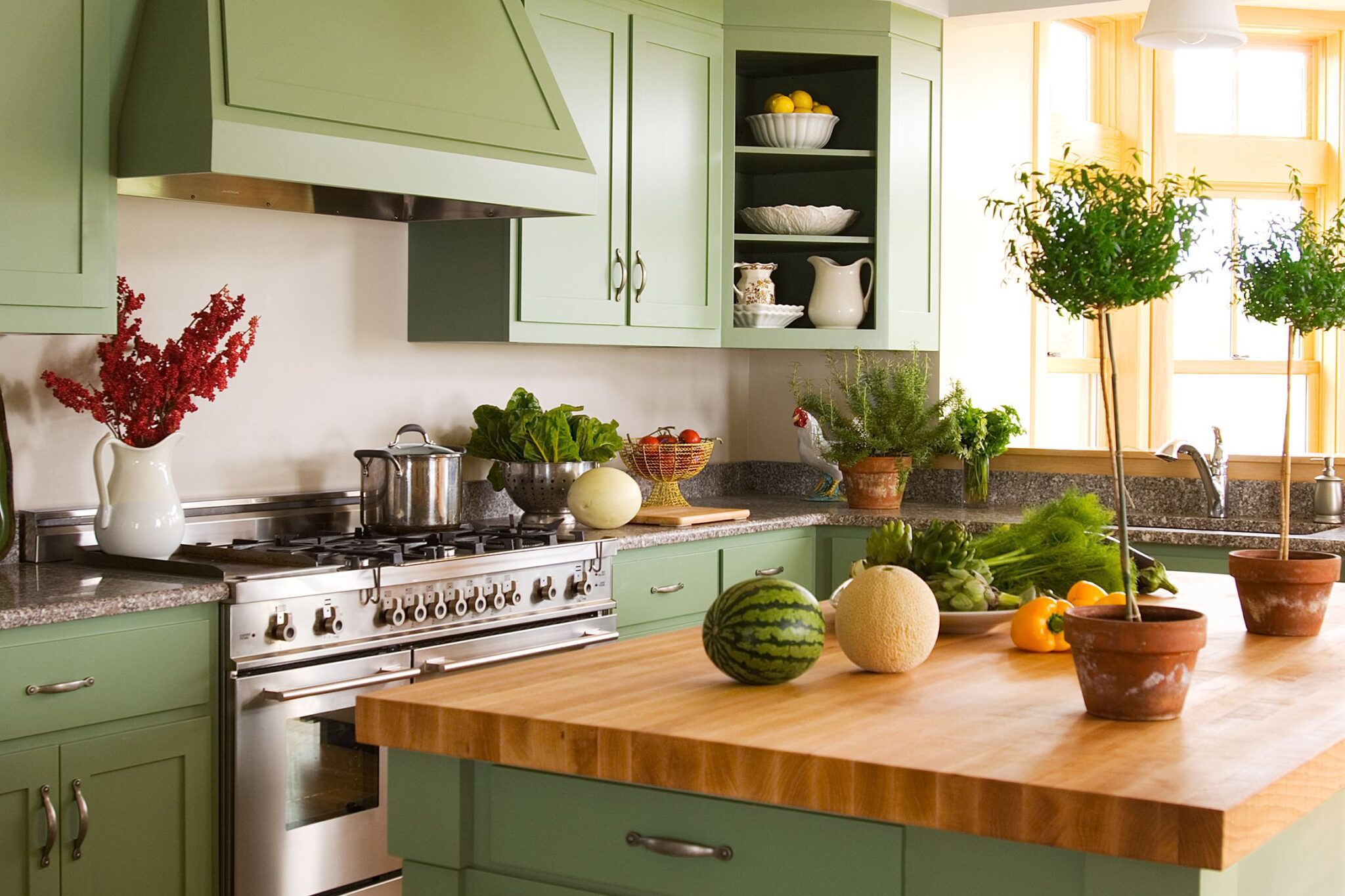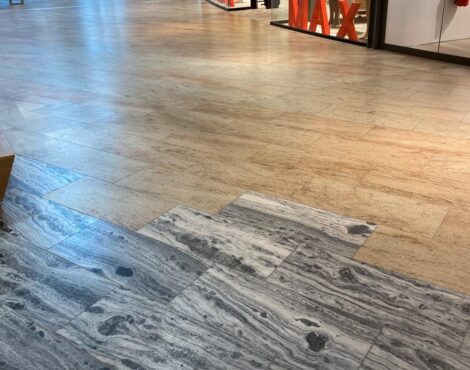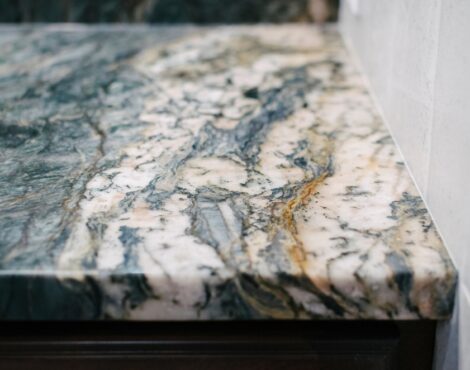Granite is a popular choice for countertops and cookware, known for its durability and natural beauty. However, concerns about the safety of granite in direct contact with food have led many to question its suitability. In this article, we’ll delve into the key aspects of granite as a material in kitchen surfaces and cookware, addressing common queries to help you make an informed decision for your kitchen.
Understanding Granite
Granite is a natural stone formed from molten magma beneath the Earth’s surface. Its composition includes various minerals like quartz, feldspar, and mica. When used in countertops or cookware, granite is typically sealed to enhance its resistance to stains and bacterial growth.
READ: Sustainable Granite & Natural Stone | Green Building Material
How Granite Is Used In The Kitchen To Prepare Food?
In a granite kitchen, the areas that typically come in direct contact with food include:
-
Countertops: Granite countertops are a primary surface for food preparation. They provide a spacious and durable area for tasks like chopping, slicing, and rolling out dough.
-
Cutting Boards: Granite cutting boards are used for chopping and preparing food. These boards offer a solid and hygienic surface that is resistant to bacterial growth.
-
Sinks: Granite sinks, especially those made from granite composite materials, are used for washing and cleaning fruits, vegetables, and dishes.
-
Islands and Tables: Kitchen islands or tables with granite surfaces serve as additional areas for food preparation and serving.
- Mortar and Pestle: A mortar and pestle made of granite is a traditional kitchen tool used for grinding and crushing herbs, spices, and other food ingredients. It consists of a heavy, bowl-shaped container (the mortar) and a blunt club-shaped tool (the pestle).

What Are Other Health Concerns Related To Granite?
Silica Dust Exposure: Granite contains crystalline silica, a mineral that, when inhaled as dust during cutting or fabrication processes, can pose health risks. Prolonged exposure to airborne silica dust may lead to respiratory issues, such as silicosis. It’s essential to use proper safety measures, such as wearing masks and using ventilation systems, to minimize dust exposure.
Chemical Sealants and Cleaners: The sealants and cleaners used on granite surfaces can contain chemicals that may cause allergic reactions in some individuals. Opting for food-safe and non-toxic sealants and cleaning products can mitigate this concern.
Maintenance Product Residue: Residue from certain cleaning or maintenance products, if not properly rinsed, may come in contact with food. Choosing gentle, non-toxic cleaning agents and ensuring thorough rinsing can prevent any potential ingestion of harmful residues.
Sealing and Porosity: Granite is naturally porous, meaning it has a low absorption rate. However, some granites are more porous than another, meaning it has tiny openings that can absorb liquids. If not properly sealed, granite countertops can potentially harbor bacteria and facilitate the growth of contaminants. However, routine sealing and proper maintenance can mitigate this risk, ensuring a safe food preparation surface.
ALSO READ | Is Granite Porous? or Non-porous or How Porous Is it?
Addressing Specific Concerns
While granite is generally considered safe for food contact, some individuals may have specific concerns about the presence of particular minerals or substances in the stone. It’s essential to address these concerns by consulting with the manufacturer or a knowledgeable professional.
Tips For Safe Usage Of Granite In Kitchen For Food Preparation
-
Sealing and Maintenance:
- Ensure that your granite countertops are properly sealed to create a protective barrier against stains and bacteria. Follow the manufacturer’s recommendations for sealing frequency.
- Regularly clean your granite surfaces with a mild, pH-balanced cleaner or a mixture of gentle dish soap and water.
-
Avoid Harsh Cleaners:
- Refrain from using abrasive cleaners or those containing harsh chemicals on your granite countertops, as these can damage the sealant and the stone itself.
-
Radon Awareness:
- While the risk is generally low, if you live in an area prone to radon issues, consider testing your home for radon gas. Adequate ventilation can help mitigate any potential concerns.
-
Choose Food-Safe Sealants:
- When resealing your granite, opt for food-safe sealants. These products are designed specifically for surfaces that come into contact with food, ensuring an extra layer of safety.
-
Consult with Professionals:
- If you have specific concerns or questions about the safety of your granite countertops, consider consulting with professionals in the industry or the manufacturer for personalized advice.
By following these tips, you can maintain the beauty and functionality of your granite countertops while ensuring a safe and hygienic environment for food preparation in your kitchen.
Stone Galleria
We offer more than just materials – we provide a partnership founded on reliability and responsiveness. Stone Galleria recognizes the distinctive requirements of commercial enterprises and is committed to delivering dependable and cost-effective supply chain management.
As a leading manufacturer, supplier, and exporter of Granite, Sandstone, and Quartzite, we tailor our products to your specifications, including dimensions, thickness, and various finishes.
Embark on the journey to enhance your operations by requesting a free quote today. Complete our inquiry form, and we will promptly respond to your needs.
Knowledgeable – Reliable – Responsive




